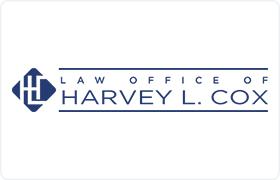Coupland Estate Lawyer, Texas
Sponsored Law Firm
-
 x
x

Click For More Info:
-
Law Office of Harvey L. Cox
1600 Lake Air Drive Suite 102 Waco, TX 76710» view mapEstate Law, Power of Attorney A New Perspective On Estate Planning
Our Family Estate & Business Planning focuses on protecting your assets from creditors, predators, lawsuits, judgments, liens, and greedy relatives.
800-795-7741
Ted Wm. Hejl
Commercial Real Estate, Real Estate, Wills, Estate
Status: In Good Standing Licensed: 56 Years
Bryan W. Mcdaniel
Wills, Family Law, Bankruptcy, Bankruptcy & Debt
Status: In Good Standing Licensed: 31 Years
Amy A. Mclean
Commercial Real Estate, Litigation, Wills, Family Law
Status: In Good Standing Licensed: 25 Years
James Patrick Quinn
Commercial Real Estate, Wills, Family Law, Business & Trade
Status: In Good Standing Licensed: 47 Years
Randall J. Pick
Wills, Estate, Family Law, Divorce & Family Law
Status: In Good Standing Licensed: 41 Years
Robert M. Tiemann
Commercial Real Estate, Real Estate, International, Gift Taxation
Status: In Good Standing Licensed: 49 Years
 Harvey L. Cox Waco, TX
Harvey L. Cox Waco, TX Practice AreasExpertise
Practice AreasExpertise
